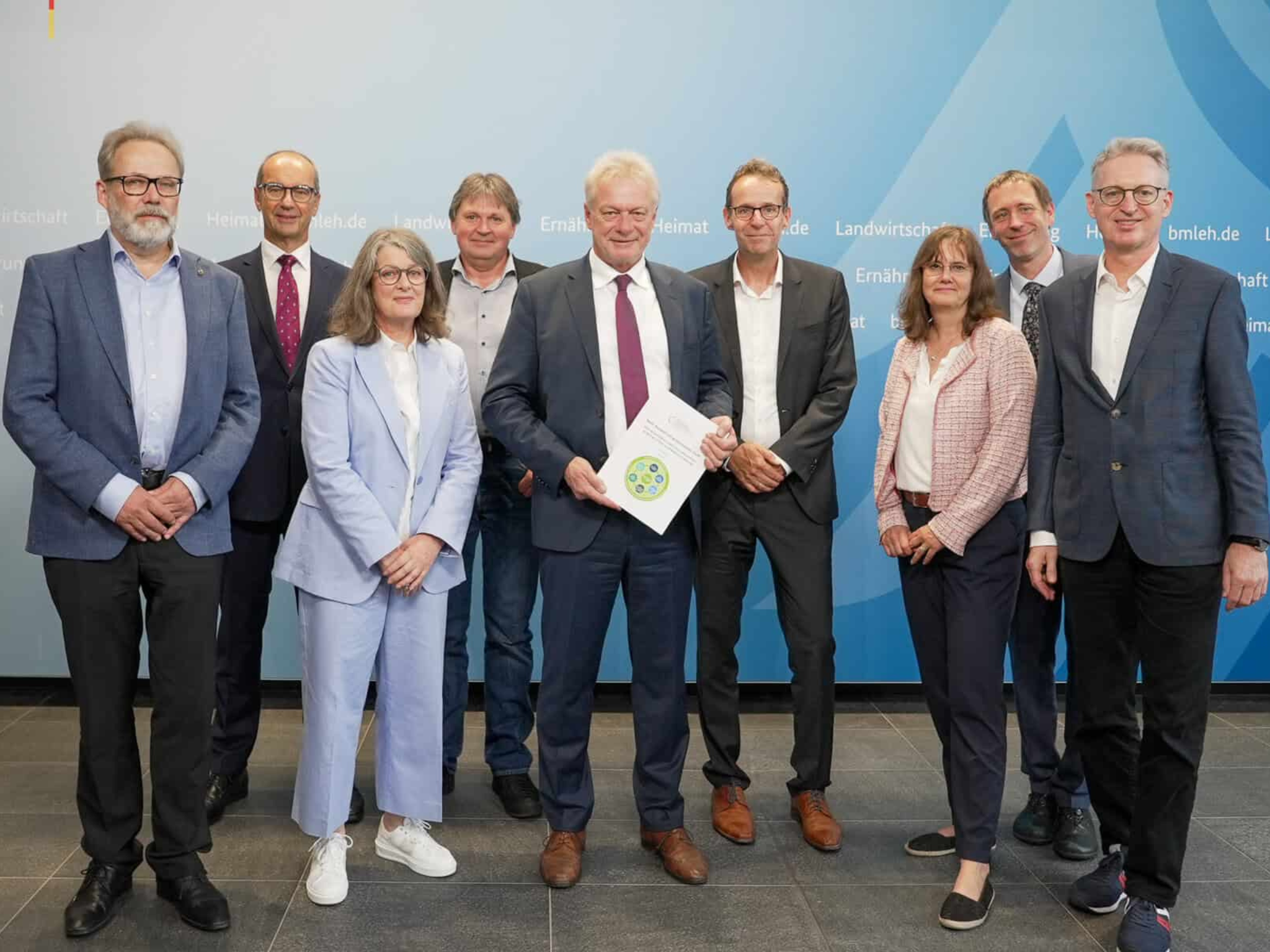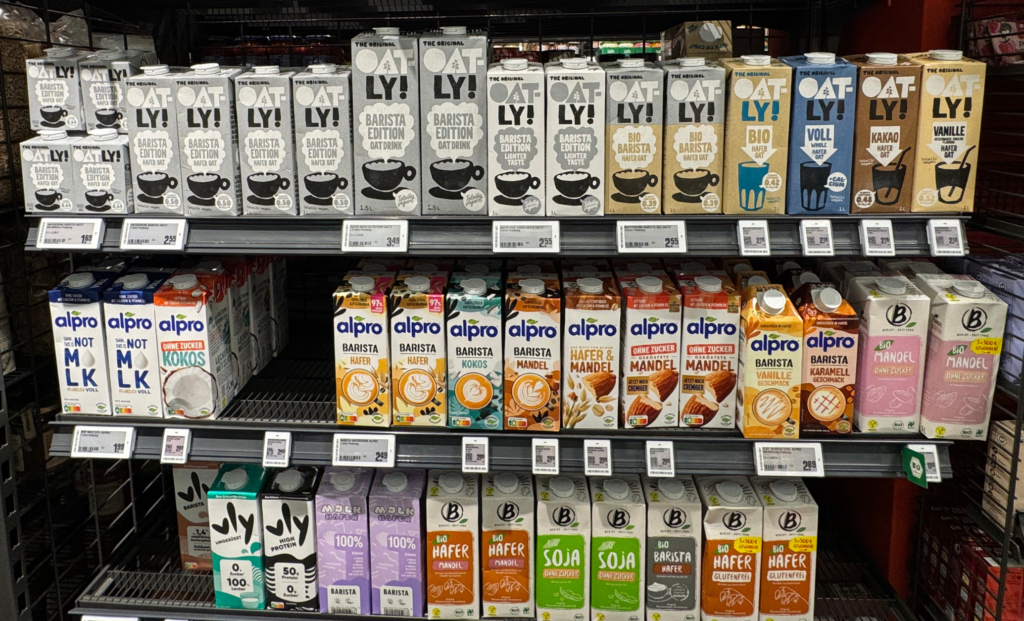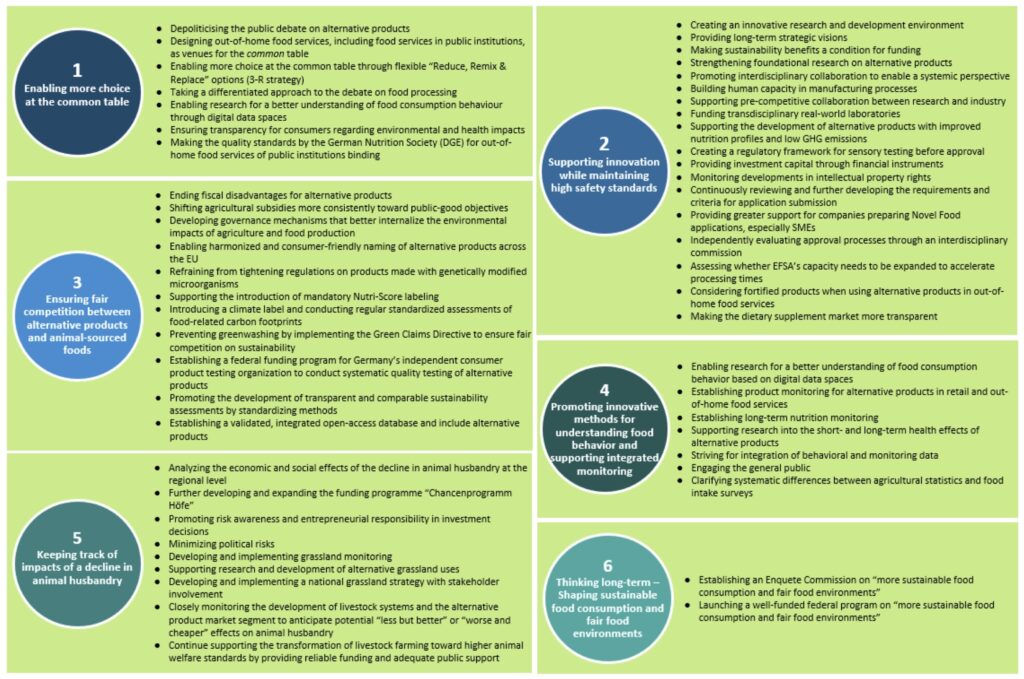
Scientists advising the German government have called for greater support of alternative proteins in a new report, recommending over 50 policy measures.
Coining the ‘three Rs’ of protein diversification is a new report by Germany’s Scientific Advisory Board on Agricultural Policy, Nutrition and Consumer Health (WBAE), which advises the government to ramp up support for plant-based, cultivated, and fermentation-derived foods.
The report, presented to agrifood minister Alois Rainer, highlights alternative proteins’ benefits for the environment, animal welfare, healthy diets, and the economy, and urges policies that put them on the “common table” alongside animal proteins and conventional plant-based foods.
As part of the novel “3R strategy”, it aims to “reduce” the portion sizes of meat and dairy, “remix” them with plant-based ingredients to create blended proteins, or “replace” them entirely with alternative proteins.
“The reduction in the consumption of animal-sourced foods is largely driven by people who wish to cut back for various reasons – not by those fully switching to vegetarian or vegan diets. Therefore, a key lever for food policy is to promote gradual change through a flexible reduction and substitution strategy,” the WBAE said.
“In recent years, meat consumption in Germany has declined by around 10kg per year, but this has been offset by an increase in cheese consumption. As a result, total greenhouse gas emissions from food have hardly decreased,” explained Achim Spiller, a professor at the University of Göttingen and chair of the WBAE.
“Alternative products may offer a way out of this ‘cheese paradox’, as they often have a significantly lower climate footprint.”
How the 3R strategy could boost protein diversification

The report outlines that alternative proteins can support the nutritionally recommended reduction in meat and dairy consumption and thus help prevent chronic diseases. Germany’s latest dietary guidelines advise citizens to source 75% of their diets from plants.
Alternative proteins are also associated with lower emissions and improve ecological conditions in regions with high livestock densities. The scientists further note that these foods expand options for people opposed to certain animal slaughter practices and those looking for more flexibility in their food budgets by enabling a “less but better” approach to meat consumption.
And since the economic and social changes linked to a dietary transition would occur gradually, abrupt disruptions to the livestock sector are unlikely. That said, it would bring major wins for Germany’s economy – a recent report found that with the right political support, alternative proteins could contribute up to €65B to the country’s economy by 2045 and create up to 250,000 new jobs.
“The WBAE explicitly rejects restrictive or obstructive policies. From a sustainability, economic, and social perspective, there are no compelling reasons to hinder the development of alternative products,” the scientists wrote in a summary report. “Instead, the board calls for active, strategically oriented promotion.”
Touching upon the 3R strategy, the WBAE said it addresses a wide range of populations and dietary patterns and can potentially create significant environmental and health benefits. “The particular strength of this strategy lies in its flexibility and suitability for everyday life. It builds on existing eating habits and can be integrated into a variety of lifestyles,” it explained.
“Out-of-home food services, including food services in public institutions, hold particular potential for making reduced consumption of animal-sourced foods easier in daily life using the 3R strategy,” it added. The effective implementation of this approach, however, requires “sufficient diversity, accessibility, and everyday usability of sustainable alternative products within a fair food environment”.
The 3R strategy “illustrates how diverse, flexible, and practical a reduced consumption of animal-sourced foods can be in everyday life”, said WBAE deputy chair Britta Renner. Policymakers, she noted, should focus on “expanding options and supporting social cohesion”.
UPFs, taxes, and novel food regulation among 54 recommended policy points

Germany is already the largest market for plant-based food in Europe, and the second-biggest globally (after the US). Value sales of plant-based food grew by 1.5% in 2024, reaching €1.68B, while volumes were up by 7%. Meanwhile, 37% of German households bought plant-based milk at least once last year, and 32% purchased a meat alternative.
But on current trends, per capita consumption of meat analogues would only reach 3kg annually, rising to 20kg for non-dairy products. However, a fundamental dietary shift (in line with the Planetary Health Diet) could help increase the intake of meat alternatives to 16kg (while conventional meat will fall to 20kg) per person, and dairy alternatives to 77kg.
To get there, the WBAE has made 54 wide-ranging policy recommendations for the German government, spanning six spheres: expanding consumer choice, supporting innovation and high safety standards, ensuring fair competition, improving understanding of food behaviours, tracking the impact of declines in animal husbandry, and shaping sustainable consumption and fair food environments.
It calls on the government to depoliticise the public debate on alternative proteins, increase financial support, and tackle perceptions of ultra-processed foods (UPFs). This is driven by “simplified classification systems” like Nova, “which lacks a solid scientific basis when linking processing methods, additives, and health effects”. “Policymakers should evaluate individual alternative products based on their specific composition, rather than relying on broad processing categories,” it said.
Germany should follow the Netherlands’s lead and establish a framework for public tastings of cultivated meat before EU-level regulatory approval. Speaking of which, WBAE is asking policymakers to provide greater support for novel food applications and assess whether the European Food Safety Authority’s capacity needs expanding to speed up processing times.

This is a concern central to the European Commission’s new life sciences strategy, which has proposed a Biotech Act that will look to accelerate the slow approval timelines. The EU Parliament has also recently voted to make biomanufacturing a priority and address the ‘lengthy’ authorisation process.
Another key recommendation is to level the playing field for alternative proteins by ending the fiscal disadvantages for these products. Currently, plant-based milk faces a 19% VAT, compared to just 7% for cow’s milk. The call for change has been echoed by retailers and companies in a public petition. And research has found that a carbon tax on meat (à la Denmark) could generate €8.2B in annual revenue for Germany.
The government should also advocate for harmonised naming of alternative protein products at the EU level. Current regulations are irregular and create “uncertainty among companies and consumers alike”, with meaty words allowed on plant-based product labels, but dairy-related terms not. But this month, there has been a renewed effort by EU policymakers to attempt to ban such designations on vegan packaging, a move labelled by one expert as “nonsense”.
The WBAE concluded by recommending that political, business, and civil society stakeholders “constructively harness the new opportunities provided by sustainable alternative products and establish fair competitive conditions to enable more choices at the common table”.
The post Reduce, Remix, Replace: German Govt Must Support Alternative Proteins, Say Scientists appeared first on Green Queen.
This post was originally published on Green Queen.